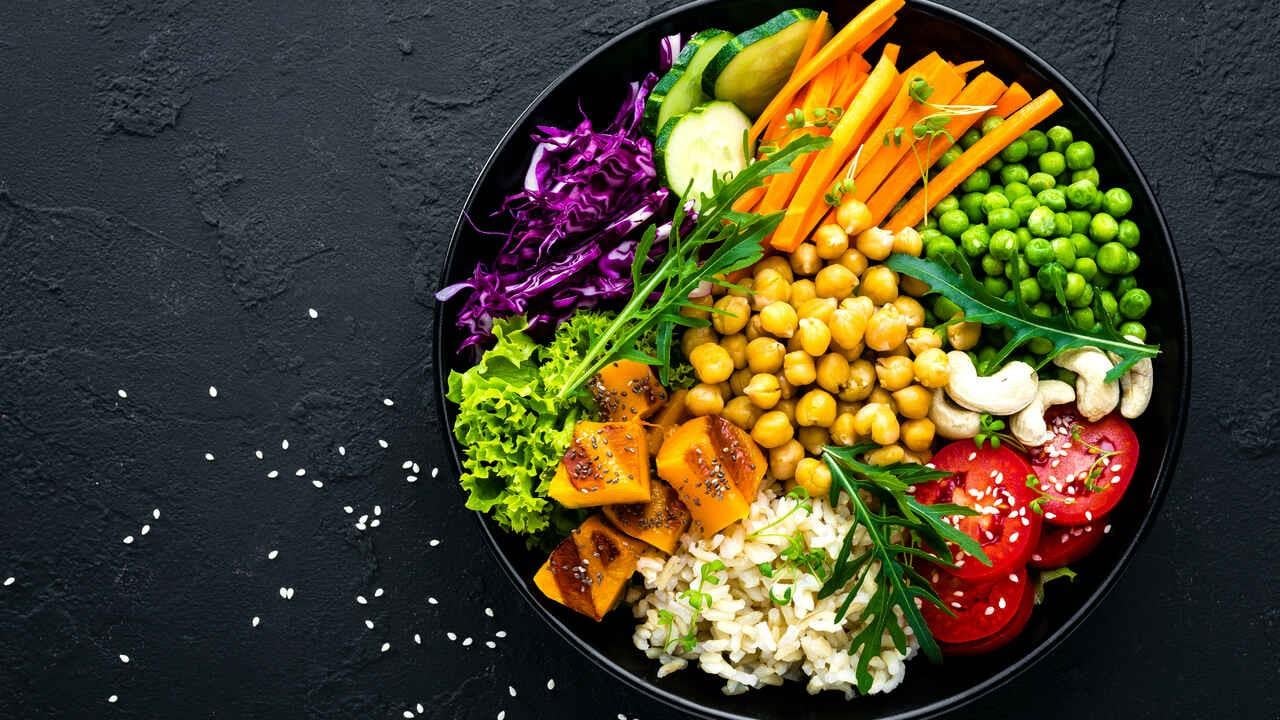How to Eat a Nutritious Vegetarian Diet
How to Eat a Nutritious Vegetarian Diet
1. Introduction
Vegetarianism is a topic of current social interest. According to studies, the number of vegetarians has significantly increased in recent years. One of the main reasons is growing public awareness of health and the negative environmental impact of meat consumption habits. Eating vegetarian correctly is crucial for human health. A vegetarian diet helps provide all necessary nutrients and reduces the risk of related diseases, including cardiovascular disease, diabetes, obesity, and various cancers. Furthermore, a proper vegetarian diet can improve digestive function, strengthen the immune system, and contribute to a healthier body. Choosing the right vegetarian foods, balancing nutrition, and adequately supplementing protein, calcium, iron, and vitamin B12 from plant-based food sources are very important. Therefore, knowledge and understanding are essential to adopt a correct vegetarian eating approach and ensure maximum health.

2. Food Selection
Selecting vegetarian foods is very important in a vegetarian diet to ensure the body receives all necessary nutrients. Nutrient-rich vegetarian foods include protein, fats, carbohydrates, vitamins, and minerals:
- Vegetarian protein sources include various beans, nuts, quinoa, vegetables, and tofu.
- Vegetarian fats are found in almonds, chia seeds, cashew butter, and olive oil.
- Vegetarian carbohydrates are present in wheat, barley, potatoes, corn, fruits, and vegetables.
- Vegetarian vitamins and minerals are found in tomatoes, carrots, pumpkins, oranges, tangerines, grapes, strawberries, peaches, plums, and various green leafy vegetables.
Vegetarian foods to avoid or limit include processed vegetarian products and vegetarian foods high in sugar and salt. Processed vegetarian products may contain preservatives and other additives that can be harmful to health if consumed excessively.
3. Nutritional Balance in a Vegetarian Diet
Nutritional balance includes all four essential nutrient groups: protein, carbohydrates, fats, and vitamins & minerals. To achieve nutritional balance in a vegetarian diet, these four groups must be balanced:
Protein: Is one of the important nutrients for building and repairing cells in the body. Vegetarian protein sources include various beans (soybeans, chickpeas, mung beans, lentils, peas, etc.), nuts (almonds, pistachios, walnuts, etc.), quinoa, vegetables (broccoli, kale, etc.), and tofu.
Fats: Are an important energy source for the body and also help absorb vitamins and minerals. Vegetarian fats are found in almonds, chia seeds, cashew butter, and olive oil. Typically, fats provide 9 calories per gram, about twice the energy provided by carbohydrates and protein. Additionally, fats help the body absorb fat-soluble vitamins such as vitamins A, D, E, and K, as well as aid in the absorption and utilization of minerals like calcium, magnesium, and zinc. However, it is important to distinguish between different types of fats. Unsaturated fats, found in vegetable oils like olive oil, flaxseed oil, and soybean oil, are beneficial for health when consumed in reasonable amounts. Saturated fats, found in red meat, cheese, and butter, can be harmful to health if consumed excessively.
Carbohydrates: Are also an important energy source for the body and need to be sufficiently supplied to maintain bodily functions. Vegetarian carbohydrates are found in wheat, barley, potatoes, corn, fruits, and vegetables.
Vitamins and Minerals Vegetarian vitamins and minerals are found in tomatoes, carrots, pumpkins, oranges, tangerines, grapes, strawberries, peaches, plums, and various green leafy vegetables, etc. To ensure nutritional balance in a vegetarian diet, it is recommended to eat a variety of vegetarian foods, including various vegetables, fruits, nuts, beans, and tofu products, and ensure sufficient intake of all four essential nutrient groups—protein, carbohydrates, fats, and vitamins & minerals—in each meal.
4. Supplementing Enough Protein, Calcium, Iron, and Vitamin B12 from Plant-Based Food Sources
Supplementing enough protein, calcium, iron, and vitamin B12 in a vegetarian diet is crucial to ensure the body receives all necessary nutrients. Calcium and iron are essential minerals for bone health and red blood cells. Vitamin B12 is a necessary vitamin for the development and function of the nervous system and blood cells. To provide enough calcium and iron, one should eat green leafy vegetables such as collard greens, spinach, kale, and bok choy. Nuts like walnuts, chia seeds, flax seeds, and cashews are also good sources of calcium and iron. However, plant-based food sources typically do not contain sufficient vitamin B12. Therefore, it is necessary to supplement vitamin B12 from sources such as functional foods.
5. Conclusion: The Right Way to Eat Vegetarian
Eating vegetarian correctly offers many health benefits. It helps reduce the risk of chronic diseases such as cardiovascular disease, cancer, and diabetes. The nutrients in vegetarian foods help improve gut health and reduce the risk of gut-related diseases. Additionally, a proper vegetarian diet also helps with weight loss and blood sugar balance.
https://lihanature.com/contact/

How to Eat a Nutritious Vegetarian Diet
How to Eat a Nutritious Vegetarian Diet 1. Introduction Vegetarianism is a topic of current social interest. According...
What is malnutrition?
Malnutrition is a condition encompassing both overnutrition and undernutrition. Individuals experiencing undernutrition may...
Nutrition in Diabetes: The Key to Effective Blood Sugar Management and Enhanced Quality of Life
Diabetes is becoming a global health challenge, affecting millions of people worldwide. While modern medicine has made significant...



